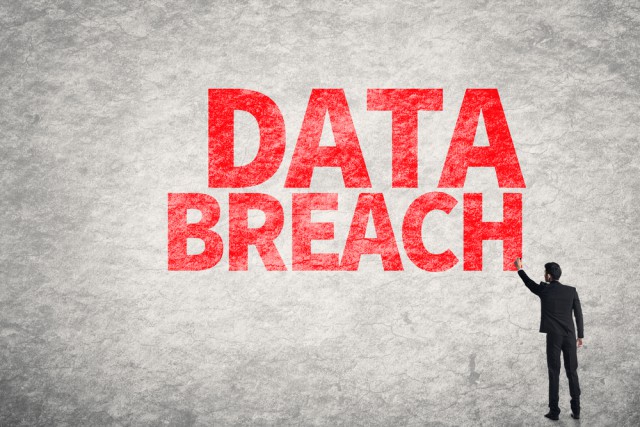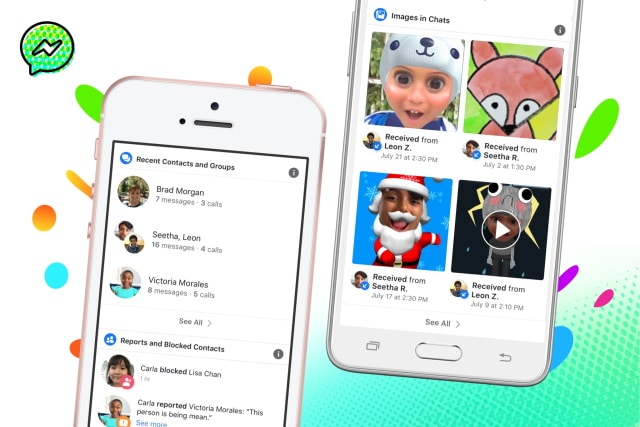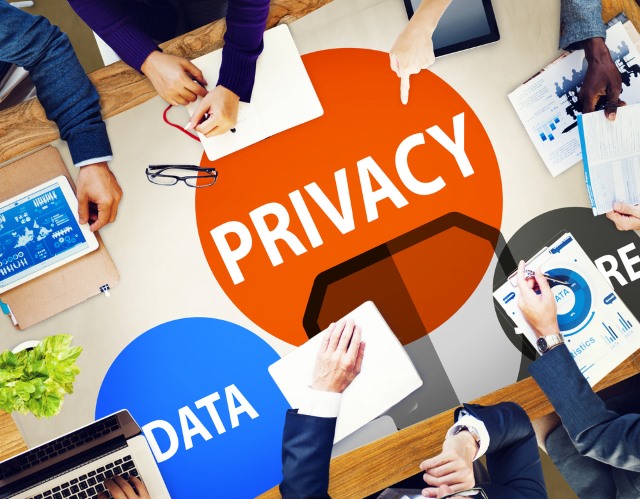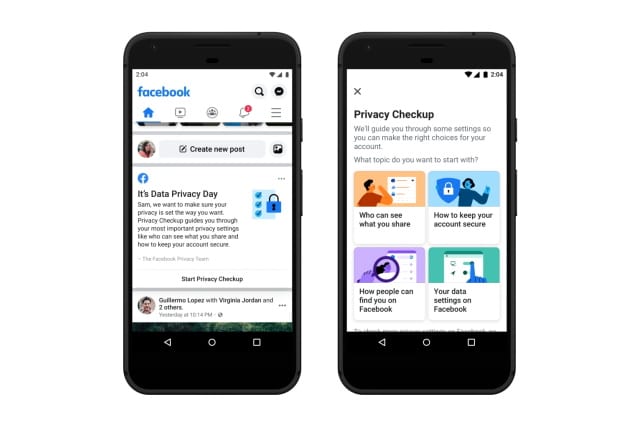
Ring makes two-factor authentication mandatory for all its devices
Following a series of privacy-related controversies, smart doorbell maker Ring is making two-factor authentication (2FA) mandatory on all of its devices. In addition, the company is also giving users more control over personalized advertising.
Ring also says that it is temporarily pausing the use of most third-party analytics services in its apps and on its website. The company is working on giving users the ability to limit the sharing of data with third parties.

Selectively revealing yourself to the world -- Privacy in the 21st century
Fifteen years ago, if you wanted to join Facebook (then The FaceBook), you needed a valid college email address and the site did not offer much more than study group meetups or a place to chat and share pictures with high school friends. Today, Facebook is a juggernaut with roughly 2.5 billion monthly active users -- and as one of the world’s largest ad platforms, the amount of data it has on its users is staggering. But in 2018, the Cambridge Analytica breach profoundly shook users’ confidence in the social network -- and the entire tech industry as well. Since the scandal, there have been Congressional hearings, lawsuits, antitrust concerns and even the complete demise of Cambridge Analytica. But the questions did not end there -- consumers began to question how all big tech used their data. Why does Google track people’s location even if they have turned tracking off? Is Alexa recording my private conversations?
Thanks to the fallout from the Cambridge Analytica scandal, and the endless stream of data sharing scandals since, consumers are more aware of their online privacy and are beginning to question how companies are monetizing their data. Let’s look at how the rise of social media created this data economy, the tech industries attempt to regulate itself and how the U.S. government is woefully unprepared to address modern privacy challenges. How do we progress in a world where every detail of our days are tracked?

15.1 billion records exposed in 2019 as data breaches hit a new high
The total number of records exposed by data breaches increased by 284 percent last year compared to 2018, with over 15.1 billion records exposed in total.
This is one of the findings of the 2019 Year End Data Breach QuickView Report from Risk Based Security although the total number of 2019 breaches disclosed so far (7,098) is up only one percent.

Enterprises struggle to implement data sanitization policies
Despite recent legislation placing greater emphasis on privacy and data protection, a new study of data sanitization policies reveals that in many cases there’s a gap between policy and execution.
The study of more than 1,800 senior business leaders by Blancco Technology Group reveals that although 96 percent have a sanitization policy in place, 31 percent have yet to communicate it across the business and 20 percent don't believe their organization's policies are finished being defined.

Mobile malware incidents increase by 142 percent
According to a new study, 36.5 percent of all organizations have experienced a malware incident on a mobile device in the past year, which represents a 142 percent increase from 2018.
Research from mobile security specialist Wandera finds 57 percent of organizations have experienced a mobile phishing incident, with 60 percent of mobile phishing attacks occurring over HTTPS.

Facebook Messenger Kids now lets parents view their kids' chat history and remotely log them out
Facebook has announced a raft of changes to its Messenger Kids service, giving parents more control and oversight over what their children are able to do.
Parents are now about to see 30 days' worth of chat logs as well as details of the types of conversation they are having with different contacts. Other new features include the ability to see images that have been shared, and also to remotely log their child out of chat sessions using the Parent Dashboard.

Google may have shared your videos with strangers
If you used Google Takeout to download an archive of your Google Photos content, there's a chance that someone else may have ended up with your videos.
The company has admitted that for a few days in November last year, "some videos in Google Photos were exported to unrelated users' archives". This means that not only could your videos have ended up on a stranger's computer, but also that you may have received random videos belonging to someone else.

Avast apologizes for selling user data and shuts down its marketing analytics subsidiary Jumpshot with immediate effect
Avast has been facing growing criticism following an investigation by Motherboard and PCMag that revealed the company’s free antivirus software was harvesting user data and selling it onto marketers.
In a bid to appease users, Avast published a blog post explaining why it was collecting user data, and announced that going forward this collection would be opt-in, but that the company would continue to sell the data via its analytics subsidiary Jumpshot. Throughout the post the security firm insisted that collected data was fully "de-identified", despite the fact that Motherboard and PCMag’s investigation showed how it could be linked back to an individual.

Avast defends its data gathering and sharing practices -- 'that's how antivirus works'
Two days ago we reported how a joint investigation by Motherboard and PCMag discovered that Avast's free antivirus software was harvesting user data and selling it onto marketers in a way that could be linked back to an individual.
Following the inevitable backlash, Avast has responded, defending its data gathering and attempting to justify the practice of selling it on, while continuing to insist that the data is fully "de-identified".

New solution allows businesses to find and protect sensitive documents
Modern businesses have large numbers of documents, many of which contain information that is commercially sensitive. But poor file management, incorrect permissions and uncontrolled sharing can put that information at risk.
The unstructured nature of this data makes it notoriously difficult to keep track of. Now though California-based Concentric is launching a new solution to allow enterprises to identify and protect these documents.

Apple releases iOS update featuring U1 chip location tracking fix
The latest update to iOS will please anyone with privacy concerns. iOS 13.3.1 gives iPhone owners the chance to toggle the location-tracking U1 Ultra Wideband chip on and off -- something Apple promised a couple of months ago.
There was controversy when security experts discovered that the chip meant iPhones were periodically tracking people's location even when location services were disabled. Now it is possible to ensure that such tracking cannot be carried out.

Why everyone needs to be speaking the same language on data privacy [Q&A]
Today is Data Privacy Day and with CCPA coming into force at the start of this month, the focus is very much on personal data, how it's used and how it needs to be protected.
One of the issues is that there are lots of definitions and terms involved which means it’s vital that everyone understands what they’re dealing with.

Facebook promises to give users more control over their privacy... again
Today is Data Privacy Day, and Facebook is using the occasion to try to convince its users that it cares about their privacy.
The social network says that it recognizes there is a lot of work to do to improve privacy protections, but that's not going to stop the company from trying to make it seem as though it doesn't represent a massive invasion of privacy. As part of its latest PR campaign, Facebook will encourage users to review their privacy settings as well as launching the Off-Facebook Activity tool globally.

Businesses gain from strong data privacy practices
Data privacy is very much in people's minds at the moment with the introduction of CCPA and other legislation around the world.
Businesses can sometimes see privacy regulations as a necessary evil that they have to comply with, but new data from Cisco reveals growing, tangible benefits for businesses that adopt strong privacy practices.

The perils of choosing convenience over privacy: When is it not worth it?
From the lightbulb and telephone to smartphones, the advanced technology of the day has always been lauded as a way to make peoples’ lives easier. But while today’s technology makes it possible to pay that electricity bill from your phone, it has also opened up privacy concerns that were unimaginable even ten years ago. In that decade, it is reported that more than 4 billion records have been stolen and 15 of the largest data breaches in history have occurred. Has technology marketed as a consumer convenience contributed to these breaches?
While George Orwell presented a dire picture of "big brother," today’s society certainly seems willing to embrace technologies that are always watching, listening and capitalizing on personal data shared in our daily lives. But what’s the true cost of choosing convenience over privacy? Let’s look at how technology has driven privacy complacency for the sake of convenience and how it has changed the way people think about and safeguard their information.